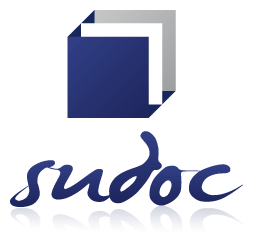Autologous transplantation of hematopoietic precursors in patients over 65 years, experience in a medical center in Cali (Colombia).
Trasplante autólogo de precursores hematopoyéticos en pacientes mayores de 65 años, experiencia en un centro médico de Cali (Colombia).
Main Article Content
Hematopoietic cell transplantation (HCT) aims to provide the recipient with a new hematopoietic system that works permanently, aiming at curing benign and neoplastic hematological diseases, if, like some solid tumors, at different ages, it is considered that older, older 65, is a relative contraindication. Objective: To describe the clinical characteristics and outcomes of patients who received a hematopoietic cell transplant over 65 years of age at a reference center in Cali. Materials and methods: A retrospective descriptive study based on the medical records of the entire autologous HCT population, from 2008 to 2013. Gender, age, comorbidities, Sorror index, hematologic recovery and mortality at day 100. Results: Thirteen patients were transplanted, 54% (7) men, 70% had a diagnosis of multiple myeloma, 30% (4) had hypertension, 97% of the patients had a low and intermediate Sorror index, 100, 2 patients died in relapse later. The median follow-up was 21 months. The most common complication associated with transplantation was mucositis, followed by febrile neutropenia. Conclusions: Bone marrow transplantation in patients over 65 years of age is an option for safe treatment; age should not be a limitation for its performance, since a good response rate with a low mortality is obtained.
Downloads
Article Details
Hatzimichael E, Tuthill M. Hematopoietic stem cell transplantation. Stem Cells Cloning. 2010;3:105-17.
Majhail NS, Farnia SH, Carpenter PA, Champlin RE, Crawford S, Marks DI, et al. Indications for autologous and allogeneic hematopoietic cell transplantation: guidelines from the American Society for Blood and Marrow Transplantation. Biol Blood Marrow Transplant [internet]. 2015;21(11):1863-9. Disponible en: http://dx.doi.org/10.1016/j.bbmt.2015.07.032
Khaled SK, Thomas SH, Forman SJ. Allogeneic hematopoietic cell transplantation for acute lymphoblastic leukemia in adults. Curr Opin Oncol. 2012;24(2):182-90.
Sorror ML. How I assess comorbidities before hematopoietic cell transplantation. Blood. 2013;121(15):2854-63.
Sorror ML, Maris MB, Storb R, Baron F, Sandmaier BM, Maloney DG, et al. Hematopoietic cell transplantation (HCT)-specific comorbidity index: a new tool for risk assessment before allogeneic HCT. 2005;106(8):2912-9.
Mohty M, Harousseau JL. Treatment of autologous stem cell transplant-eligible multiple myeloma patients: ten questions and answers. Haematologica [internet]. 2014;99(3):408-16. Disponible en: http://www.haematologica.org/cgi/doi/10.3324/haematol.2013.096149
Auner HW, Garderet L, Kröger N. Autologous haematopoietic cell transplantation in elderly patients with multiple myeloma. Br J Haematol. 2015;171(4):453-62.
Brenner H, Gondos A, Pulte D. Recent major improvement in long-term survival of younger patients with multiple myeloma. Blood. 2008;111(5):2521-6.
Majhail NS, Farnia SH, Carpenter PA, Champlin RE, Crawford S, Marks DI, et al. Indications for autologous and allogeneic hematopoietic cell transplantation: guidelines from the American Society for Blood and Marrow Transplantation. Biol Blood Marrow Transplant [internet]. 2015;21(11):1863-9. Disponible en: https://www.ncbi.nlm.nih.gov/pmc/articles/PMC4830270/pdf/nihms-770692.pdf
Thanendrarajan S, Stein CK, Davies FE, Van Rhee F, Zangari M, Heuck C, et al. Defining the impact of tandem autologous stem cell transplantation in multiple myeloma: a casematch analysis in the total therapy trials. Blood [internet]. 2015;126(23):3182. Disponible en: http://www.bloodjournal.org/content/126/23/3182.abstract
Balsam L, Saad C, Arsene C, Fogel J. Impact of autologous stem cell transplantation on blood pressure and renal function in multiple myeloma patients. J Natl Med Assoc [internet]. 2017;109(3):182-91. Disponible en: http://dx.doi.org/10.1016/j.jnma.2017.02.010
Alyea E, Weller E, Schlossman R, Canning C, Mauch P, Ng A, et al. Outcome after autologous and allogeneic stem cell transplantation for patients with multiple myeloma: impact of graft-versus-myeloma effect. Bone Marrow Transplant [internet]. 2003;32(12):1145-51. Disponible en: http://www.nature.com/doifinder/10.1038/sj.bmt.1704289
Kumar L, Gogi R, Patel AK, Mookerjee A, Sahoo RK, Malik PS, et al. Multiple myeloma with extramedullary disease: impact of autologous stem cell transplantation on outcome. Bone Marrow Transplant [internet]. 2017;52(10):1473-5. Disponible en: http://dx.doi.org/10.1038/bmt.2017.165
McCarthy PL Jr, Hahn T, Hassebroek A, Bredeson C, Gajewski J, Hale G, et al. Trends in use of and survival after autologous hematopoietic cell transplantation in North America, 1995-2005: significant improvement in survival for lymphoma and myeloma during a period of increasing recipient age. Biol Blood Marrow Transplant. 2013;19(7):1116-23.
Elstrom R, Martin P, Ostrow K, Barrientos J, Chadburn A, Furman R, et al. Response to second-line therapy defines the potential for cure in patients with recurrent diffuse large B-cell lymphoma: implications for the development of novel therapeutic strategies. Clin Lymphoma Myeloma Leuk. 2010;10(3):192-6.
Jantunen E, Lemoli R. Preemptive use of plerixafor in difficult-to-mobilize patients: an emerging concept. Transfusion. 2012;52(4):906-14.

















